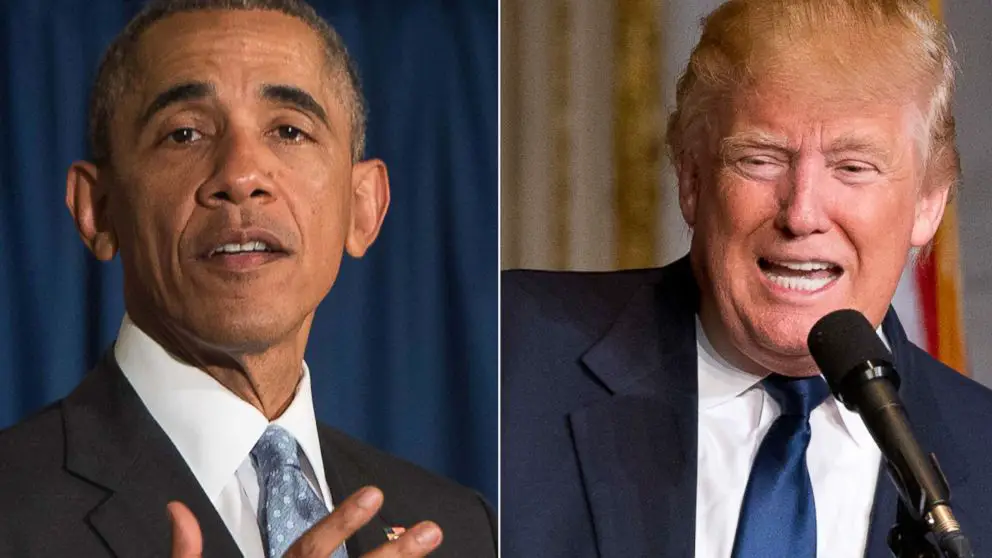On the campaign trail, Donald Trump made repeal of Obamacare a primary goal. It was going to be one of the first things he wanted to do. So there were questions about how it would be replaced. He said, well, yeah, the idea of covering pre-existing conditions would stay. And, yeah, he sort of liked the idea of kids being allowed to stay on their parents’ plans into their 20s. It began to look like the only thing that would change would be the name: “Obamacare.”
Now, we’re hearing that the replacement could also take years.
Congressional Republicans are setting up their own, self-imposed deadline to make good on their vow to replace the Affordable Care Act. With buy-in from Donald Trump’s transition team, GOP leaders on both sides of the Capitol are coalescing around a plan to vote to repeal the law in early 2017 — but delay the effective date for that repeal for as long as three years. . .before the clock runs out and 20 million Americans lose their health insurance.
The idea is to satisfy conservative critics who want President Barack Obama’s signature initiative gone now, but reassure Americans that Republicans won’t upend the entire health care system without a viable alternative that preserves the law’s popular provisions. . .
Trump has made the GOP’s task harder by saying he wants to preserve elements of the the law that protect people with pre-existing conditions and allow young people to remain on their parent’s health insurance until they turn 26 years old, pricey provisions that will complicate Republican efforts to merely gut the law. Plus, there are millions of people now relying on Obamacare’s Medicaid expansion that the GOP will be loath to cast off the insurance rolls.
And following a repeal vote, insurance companies could bail on Obamacare immediately, even if there is a three-year grace period, leaving people with no health plans.
“The flaws in Obamacare are obvious to me. The solutions are much harder,” said Sen. Lindsey Graham (R-S.C.).
A lot of the campaign talk about Obamacare was just theatre. There was a recent interview with a man in Illinois who said, yes, Obamacare dropped his payment by $300 per month, and yes, it’s saved him about that much each year, and yes, he was covered for his pre-existing cancer, but two of the insurance companies have bailed, so maybe, some time in the future, he may have to pay extra, so he’s complaining about Obamacare. Obamacare gets the complaint—instead of the insurance companies that are profiting from it.
But apparently, that man was in the minority. A new poll says only one in four want Obamacare repealed.
Only about one in four Americans wants President-elect Donald Trump to entirely repeal his predecessor’s health care law that extended coverage to millions, a new poll has found.
The post-election survey released Thursday by the nonpartisan Kaiser Family Foundation also found hints of a pragmatic shift among some Republican foes of “Obamacare.”
While 52 percent of Republicans say they want the law completely repealed, that share is down from 69 percent just last month, before the election. And more Republicans now say they want the law “scaled back” under the new president and GOP Congress, with that share more than doubling from 11 percent before the election to 24 percent after.
Kaiser CEO Drew Altman said the foundation’s polling experts aren’t quite sure what to make of that finding, and will continue to track the apparent shift in future polls. The organization is a clearinghouse for information and analysis about the health care system. . .
And indeed, its popularity only seems to be gaining among Americans: The day following the election, HealthCare.gov notched 100,000 signups, the highest single-day number since open enrollment began.
It’s not just pre-existing conditions and insuring older kids that people like.
The poll found majorities across party lines support many of the health care law’s provisions, but not its requirement that individuals have coverage or risk fines, and its mandate that medium-to-large employers pay fines if they don’t offer health insurance.
Among the provisions with support across party lines:
–Allowing young adults to stay on a parent’s insurance until age 26.
–No copayments for many preventive services.
–Closing the Medicare prescription drug coverage gap known as the “doughnut hole.”
–Financial help for low- and moderate-income people to pay their insurance premiums.
–A state option to expand Medicaid to cover more low-income adults.
–Barring insurance companies from denying coverage because of a person’s medical history.
–Increased Medicare payroll taxes for upper-income earners.
Ironically, sign ups jumped after Trump’s election.
More than 100,000 consumers signed up Wednesday for Obamacare plans, the most of any day since open enrollment started Nov.1, the Obama administration said Thursday. . .
White House Press Secretary Josh Earnest. . .noted that increasing enrollment helps the system, “put downward pressure on the premiums paid by everybody.”
Like many things that are a big deal one day, Obamacare may be partly or completely ignored now that the election is over.
Donate Now to Support Election Central
- Help defend independent journalism
- Directly support this website and our efforts
